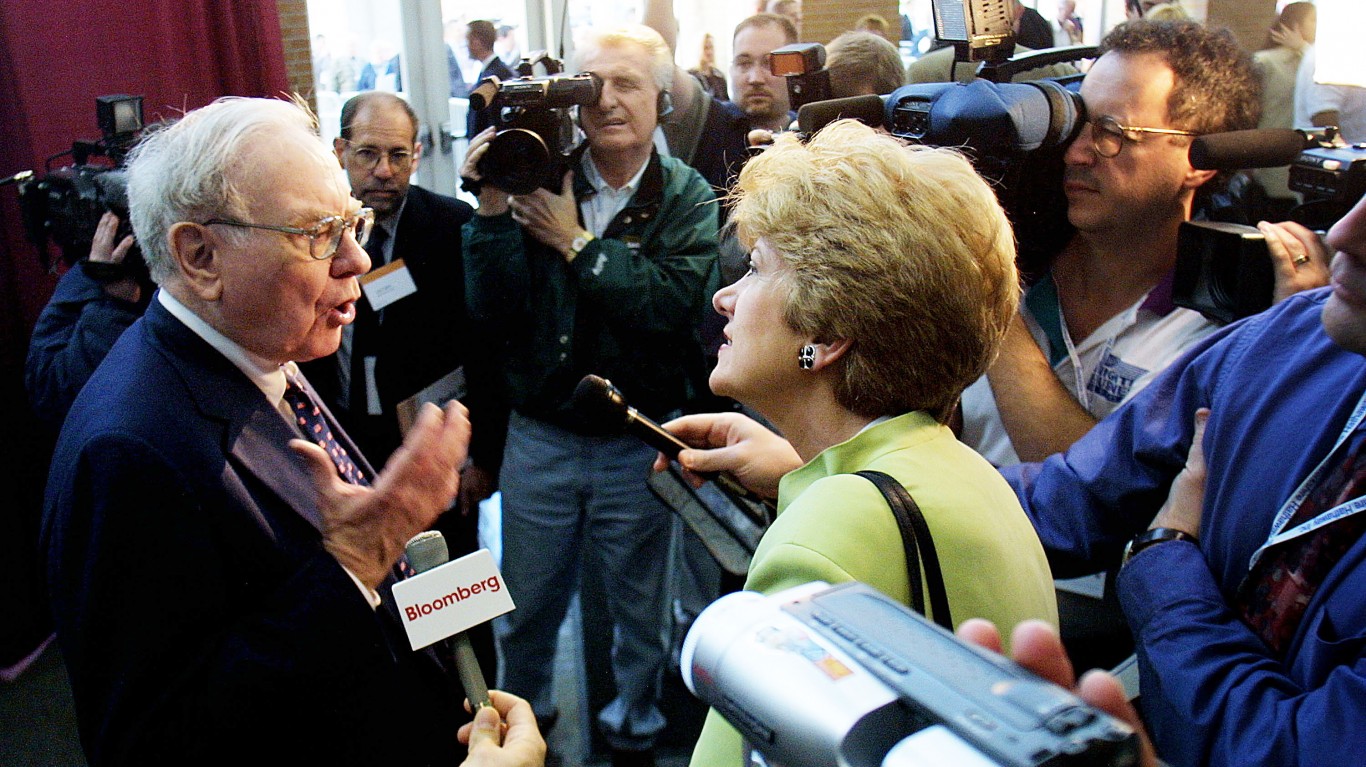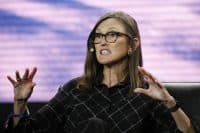The hallmark of some of the most successful companies over the last fifty years is that the CEOs spent a great deal of their time with customers and at company locations around the world. Probably the two most famous travelers were Willard Marriott and Sam Walton. At one point, Walton visited hundreds of stores a year. If these CEOs wanted to know how they were doing with the consumers who spent money with them, they did not have to check with anyone else in management.
Which CEOs get out often enough and which don’t? Here is the 24/7 Wall St. 2008 list:
Those who should get out more often:
Eddie Lampert, chairman of Sears (SHLD), is pretty busy at his hedge fund. Sears and K-Mart have fallen apart over the last year. Lampert did show up at the annual meeting. He spent most of his time talking about cost cuts and stock buy-backs. A check of Sears PR shows that his comments about his stores and quality of merchandise are very, very rare. Maybe that is because billionaires don’t spend much time at discount chains.
Howard Schultz, CEO and founder of Starbucks (SBUX) is a great one for writing memos about what is wrong with his stores. The most recent letters from headquarters in Seattle were about the company missing earnings. Schultz puts out a series of PRs called the company’s Transformation Agenda Communications. 24/7 has visited a lot of Starbucks over the last year. No one has seen Howard. Maybe he should stop in more often and find out why his same-store traffic is so bad.
Alan Mulally of Ford (F) spends a lot of time talking about downsizing and his new crossovers. The most recent news out of the car company has to do with its commitment to human and labor rights. Tell that to all the people who have been sacked at Ford. If Mulally spent some time with farmers and construction workers he might find out what he could do to help sales of his flagship F-150 pick-up. 24/7 asked some dealers if they had ever heard of Mulally kicking the tires at dealers. None of them even know what he looks like. Sales at Ford could not be running much worse than they are now.
Julian Day at RadioShack (RSH) has a stock that trades near its 52-week low. He also has 4,500 stores. Based on how things are going, his potential customers are going into Best Buy. RadioShack’s website makes a big deal of the fact that Mr. Day was part of the turnaround at Sears and Kmart. That did not turn out too well. One of the company’s recent PRs was about the fact that RadioShack stores are helping consumers make the transition to digital television. Maybe Day should spend more time with customers going over how to "obtain a DTV converter box that will allow an analog television to receive digital signals."
Michael Dell of Dell (DELL) has started selling PCs in retail outlets. The old business model of using the internet and phone to order Dells was not working well enough. Dell does get around the world and has been to Asia and the Middle East to set up new resale chains, but that is not the same as walking through the local Wal-Mart to find out why customers are buying HP or Lenovo PCs instead of his. He did give a nifty speech on "green IT" recently. That should bring people into the Dell retailers.
Joe Moglia of TDAmeritrade (AMTD) may want to hit the sidewalks. His firm fell behind companies like Schwab and Scottrade in the JD Power discount broker rankings. The company has over 100 locations. Schwab’s stock has also done better in the last year. If he can’t get out, perhaps he could take orders from investors in the call center.
Sprint (S) had some great news. Its CEO Dan Hesse put together a deal with Clearwire (CLWR), Google (GOOG), Intel (INTC), Comcast (CMCSA), and Time Warner Cable (TWC) to build a national WiMax network. Unfortunately, many Sprint customers still hate the company. Sprint finished last in the JD Power wireless customer care ratings. It also finished last in the retail sales satisfaction survey. It is nice that the wireless company has put together a plan for its future, but, in the present, customers are walking out the Sprint doors at a dizzying pace. Hesse may want to get out in the field and find out if he can staunch the flow.
Palm (PALM) CEO Ed Colligan better hit retail outlets which carry his smartphones today if he can catch a ride. 24/7 visits to AT&T mobile stores indicated that the RIM (RIMM) Blackberry and Apple (AAPL) iPhone are selling like mad but no one will touch the Palm products. This company is falling apart at the seams. Colligan may want to move from store to store and pitch the product himself. It’s that desperate.
A lot is amiss at Target (TGT). Its stock is down 10% in the last year. Shares of its rival Wal-Mart are up close to 20%. CEO Gregg Steinhafel may want to do what Sam Walton did and have rallies in a couple of stores a day. March comparable store sales at the retailer fell 4%. The company did sell some credit card receivables to JP Morgan (JPM) and that may have been a good use of management time, but poor sales are not going to be offset by smart financing packages.
And, those who must be getting out enough:
Wal-Mart (WMT) may be one of the best turnaround stories in the last year. Same-store sales are actually running up, which is rare in the industry. Sam Walton invented the "CEO store tour". Does current CEO Lee Scott get around as much? No one could match Walton’s travel schedule. But, you can find video of Lee at a store visit on the Wal-Mart site. And, the store managers and customers are treated like royalty. They are quoted in the company PRs more than Scott is.
Apple (AAPL) CEO Steve Jobs may not visit retail outlets or Apple stores, but don’t tell that to the people who stand in line for hours to get an iPhone or the latest Mac. The Apple faithful believe that Jobs is a deity who lives in every product and outlet. That seems a bit "Zen" but why try to convince people otherwise. He gets out enough "in spirit."
Mark Hurd of Hewlett-Packard (HPQ) has helped build the king of store-sold PCs. That has helped the company be the largest seller of computers in the world and kept them high on customer satisfaction surveys. HP was recently named one of Wal-Mart’s "Supplier of the Year". Why? Over the course of 2007, Wal-Mart’s sales of HP printer and ink products grew at three times the rate of the industry, and profit in this segment doubled over the prior year. Hurd has to be spending a lot of time on retail. No one gets that good at it otherwise.
James Skinner of McDonald’s (MCD) has been beating the competition to within an inch of its life for two years. McDonald’s is growing faster than the industry, which is hard when you are the largest player. The company has been launching products which carefully target the breakfast and coffee crowd and has been "spot on" when it comes to competitive pricing. Skinner’s picture at the McDonald’s site shows him standing in one of his stores, not sitting behind a desk. If he is not in that store on a regular basis, he certainly knows what goes on there.
Charles Schwab of Schwab (SCHW) may or may not spend time in the company’s retail offices. He actually does something better. He puts his name on almost every piece of marketing the company does. "Ask Chuck". Schwab makes sure every customer knows it is his company, they are investing at a firm where his is responsible because his name is on the door. He even puts a letter online telling people why he is on the side of the investor. Hokey. Maybe. But, it works.
James Sinegal of CostCo (COST) isn’t just in the stores. After a fashion, he is the stores. He started the company in 1983. According to the company, he tries to visit every one of the CostCo stores at least once a year. He gets the gold medal for CEOs who spend time in the field.
Douglas A. McIntyre
It’s Your Money, Your Future—Own It (sponsor)
Retirement can be daunting, but it doesn’t need to be.
Imagine having an expert in your corner to help you with your financial goals. Someone to help you determine if you’re ahead, behind, or right on track. With SmartAsset, that’s not just a dream—it’s reality. This free tool connects you with pre-screened financial advisors who work in your best interests. It’s quick, it’s easy, so take the leap today and start planning smarter!
Don’t waste another minute; get started right here and help your retirement dreams become a retirement reality.
Thank you for reading! Have some feedback for us?
Contact the 24/7 Wall St. editorial team.





